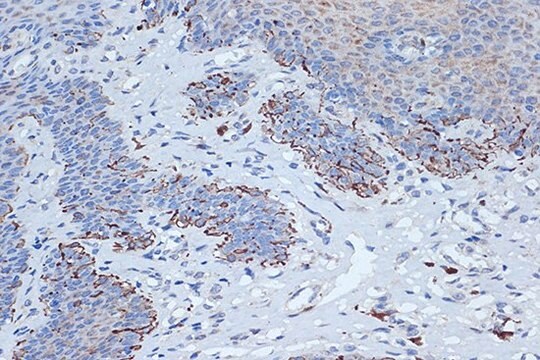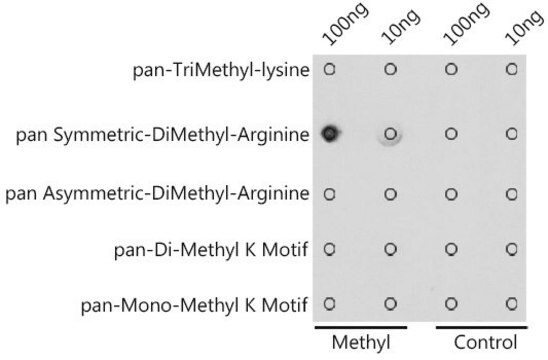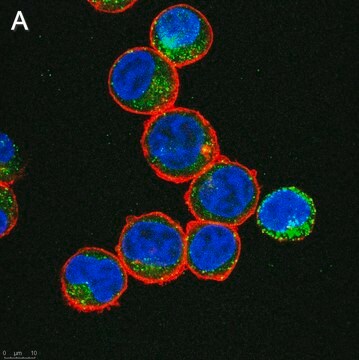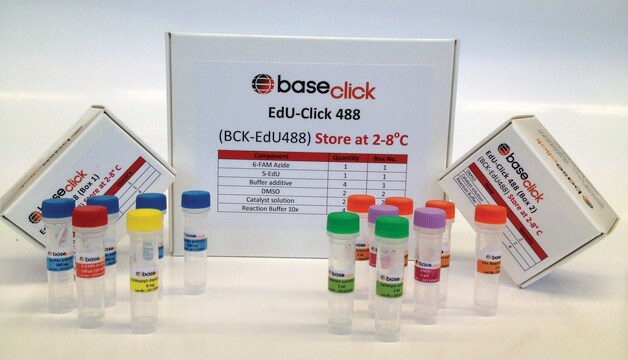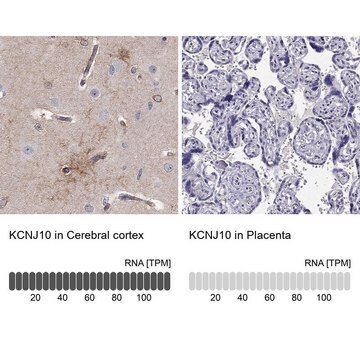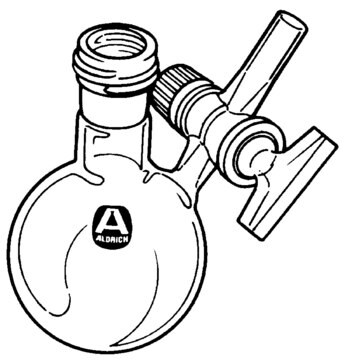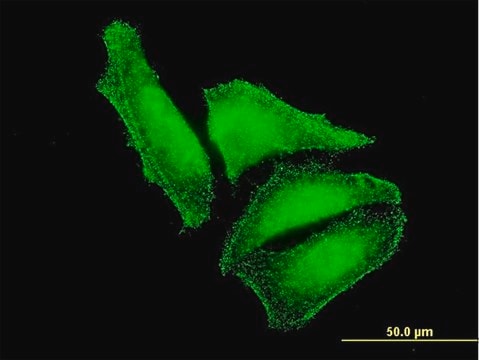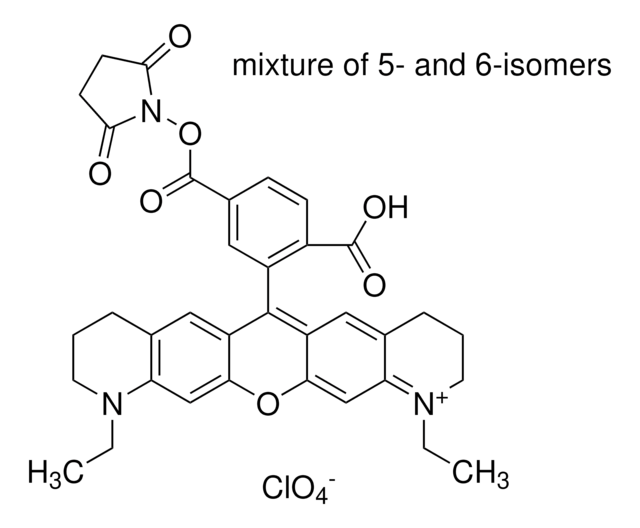推薦產品
生物源
rabbit
品質等級
共軛
unconjugated
抗體表格
affinity isolated antibody
抗體產品種類
primary antibodies
無性繁殖
polyclonal
產品線
Prestige Antibodies® Powered by Atlas Antibodies
形狀
buffered aqueous glycerol solution
物種活性
mouse, human, rat
技術
immunoblotting: 0.04-0.4 μg/mL
immunofluorescence: 0.25-2 μg/mL
immunohistochemistry: 1:50-1:200
免疫原序列
ATSTMSEGAQTMIEHNSTMLESDLGTMVINSEDEEEEDGTMKRNATSPQVQRPSFMDYFDKQDFKNKSHENCNQNMHEPFPMSKNVFPDNWKVPQDGDFDFLKNLSLEELQMRLKALDPMMEREI
運輸包裝
wet ice
儲存溫度
−20°C
目標翻譯後修改
unmodified
基因資訊
human ... STK3(6788)
免疫原
serine/threonine-protein kinase 3 (EC 2.7.11.1)(STE20-like kinase MST2)(MST-2)(Mammalian STE20-like protein kinase 2)(Serine/threonine-protein kinase Krs-1) recombinant protein epitope signature tag (PrEST)
應用
All Prestige Antibodies Powered by Atlas Antibodies are developed and validated by the Human Protein Atlas (HPA) project and as a result, are supported by the most extensive characterization in the industry.
The Human Protein Atlas project can be subdivided into three efforts: Human Tissue Atlas, Cancer Atlas, and Human Cell Atlas. The antibodies that have been generated in support of the Tissue and Cancer Atlas projects have been tested by immunohistochemistry against hundreds of normal and disease tissues and through the recent efforts of the Human Cell Atlas project, many have been characterized by immunofluorescence to map the human proteome not only at the tissue level but now at the subcellular level. These images and the collection of this vast data set can be viewed on the Human Protein Atlas (HPA) site by clicking on the Image Gallery link. We also provide Prestige Antibodies® protocols and other useful information.
The Human Protein Atlas project can be subdivided into three efforts: Human Tissue Atlas, Cancer Atlas, and Human Cell Atlas. The antibodies that have been generated in support of the Tissue and Cancer Atlas projects have been tested by immunohistochemistry against hundreds of normal and disease tissues and through the recent efforts of the Human Cell Atlas project, many have been characterized by immunofluorescence to map the human proteome not only at the tissue level but now at the subcellular level. These images and the collection of this vast data set can be viewed on the Human Protein Atlas (HPA) site by clicking on the Image Gallery link. We also provide Prestige Antibodies® protocols and other useful information.
生化/生理作用
STK3 (serine/threonine kinase 3) encodes a serine/threonine protein kinase. It is highly expressed in the adult kidney, skeletal and placental tissues and at very low levels in adult heart, lung, liver and brain tissues. It is activated by trans-autophosphorylation at its activation loop. It is associated with the stress-dependent cardiac hypertrophy and remodeling in the human heart. It also suppresses the Wnt/β-catenin pathway through the Hippo pathway. In association with other cytoplasmic protein kinase, STK3 regulates cellular activities during quiescence and quiescence-related apoptosis.
特點和優勢
Prestige Antibodies® are highly characterized and extensively validated antibodies with the added benefit of all available characterization data for each target being accessible via the Human Protein Atlas portal linked just below the product name at the top of this page. The uniqueness and low cross-reactivity of the Prestige Antibodies® to other proteins are due to a thorough selection of antigen regions, affinity purification, and stringent selection. Prestige antigen controls are available for every corresponding Prestige Antibody and can be found in the linkage section.
Every Prestige Antibody is tested in the following ways:
Every Prestige Antibody is tested in the following ways:
- IHC tissue array of 44 normal human tissues and 20 of the most common cancer type tissues.
- Protein array of 364 human recombinant protein fragments.
聯結
Corresponding Antigen APREST70211
外觀
Solution in phosphate-buffered saline, pH 7.2, containing 40% glycerol and 0.02% sodium azide.
法律資訊
Prestige Antibodies is a registered trademark of Merck KGaA, Darmstadt, Germany
免責聲明
Unless otherwise stated in our catalog or other company documentation accompanying the product(s), our products are intended for research use only and are not to be used for any other purpose, which includes but is not limited to, unauthorized commercial uses, in vitro diagnostic uses, ex vivo or in vivo therapeutic uses or any type of consumption or application to humans or animals.
未找到適合的產品?
試用我們的產品選擇工具.
儲存類別代碼
10 - Combustible liquids
水污染物質分類(WGK)
WGK 1
閃點(°F)
Not applicable
閃點(°C)
Not applicable
分析證明 (COA)
輸入產品批次/批號來搜索 分析證明 (COA)。在產品’s標籤上找到批次和批號,寫有 ‘Lot’或‘Batch’.。
Min Zi et al.
The Journal of biological chemistry, 289(35), 24275-24288 (2014-07-19)
The Hippo signaling pathway has recently moved to center stage in cardiac research because of its key role in cardiomyocyte proliferation and regeneration of the embryonic and newborn heart. However, its role in the adult heart is incompletely understood. We
Fei Xu et al.
The Biochemical journal, 458(1), 159-169 (2013-11-05)
The Hippo signalling pathway can suppress the Wnt/β-catenin signalling pathway through the last downstream effectors YAP (Yes-associated protein)/TAZ (tafazzin). MST (mammalian sterile 20-like kinase) 1 functions as the upstream kinase of the Hippo pathway, and CK1ε (casein kinase 1ε) plays
C L Creasy et al.
Gene, 167(1-2), 303-306 (1995-12-29)
We have identified a second human homology of the yeast Ste20 protein kinase family, which we designate MST2. MST2 is most similar to the previously identified MST1 protein kinase (78% identity, 88% similarity). Northern analysis indicates that MST2 mRNA is
H C Wang et al.
The Journal of biological chemistry, 275(33), 25850-25857 (2000-06-07)
We have identified a cell quiescence-specific 33-kDa cytoplasmic protein kinase (p33(QIK), Quiescence-Induced Kinase) based on induction of p33(QIK)-specific kinase activity of cells growth-arrested in the quiescent phase and deactivation upon entry into the cell cycle. Blockage of macromolecular synthesis prevents
Lisheng Ni et al.
Structure (London, England : 1993), 21(10), 1757-1768 (2013-08-27)
The tumor-suppressive Hippo pathway controls tissue homeostasis through balancing cell proliferation and apoptosis. Activation of the kinases Mst1 and Mst2 (Mst1/2) is a key upstream event in this pathway and remains poorly understood. Mst1/2 and their critical regulators RASSFs contain
我們的科學家團隊在所有研究領域都有豐富的經驗,包括生命科學、材料科學、化學合成、色譜、分析等.
聯絡技術服務